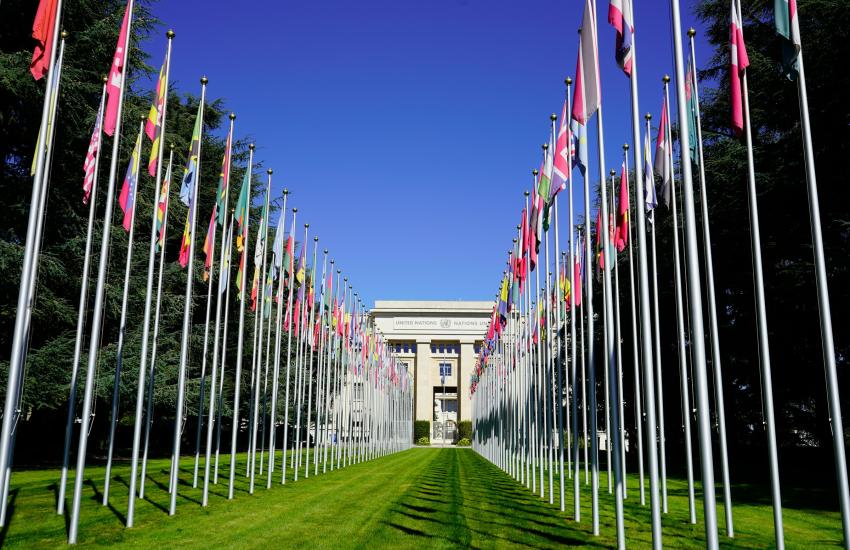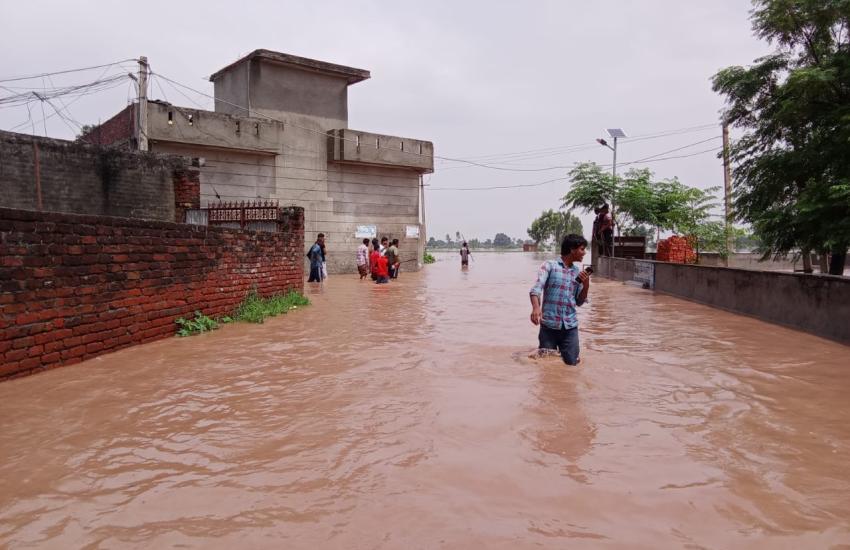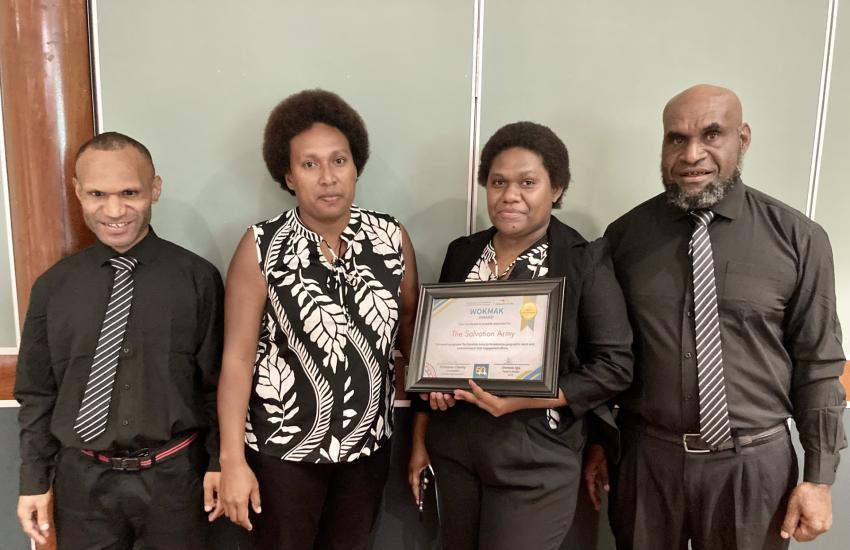Damaris Frick, a German Salvationist, is currently deployed by The Salvation Army’s International Emergency Services in Chennai, India, where she has been preparing reports on previous relief work. At the beginning of November, as the region of Andhra Pradesh was hit by major flooding, she found herself in the middle of a new crisis. At first hand she is discovering how cyclones impact many of the world’s most vulnerable communities every year. Here she continues her story:
FOR the past couple of days I have been in the Bapatla area, supporting Captain John Kumar, the relief coordinator for The Salvation Army's India Central Territory. The team I was working with went to up to five different villages each day to distribute rice. In each village we provided rice for 100-300 families. Several teams did the same in other villages.
On the first morning we went to a mill to purchase rice and I watched the rice being polished (I discovered that unpolished rice is healthier but most people prefer the polished variety). I learned how to distinguish between the various qualities of rice. Long, thin grains seem to be better than small, thick ones.
Rice takes around four months to grow and the end of November would have been harvest time in this area. But the monsoon rains which flooded the fields have changed everything. I was told that when the grains are still growing inside the plant they are very delicate. Too much water and everything is ruined.
We saw some fields where the flood waters have already gone. They looked luscious and green but the damage had been done – the rice was covered by water for too many days. The plants will continue to grow but they will bear no fruit. For the farmers there will be no harvest. No harvest means no work for the day labourers.
In a village called Vengaleavahar I met Mr Vandhanalu. The frail man was at least 80 years old and had learned English in the days before independence. He was thrilled to meet someone he could talk to in this language. 'May I provide my tongue for another question?' he asked with a loud voice (to make sure I understood) – in a tone that sounded quaint and a little like singing. He had plenty of questions about me, my family, my faith, my origin. He is a member of the local Salvation Army corps (church) and was glad of the support he and the other villagers were receiving in this difficult time. The meaning of his name is ‘thank you’ and he seemed a very grateful and dignified person.
On Sunday morning we visited a Salvation Army church service. It moved my heart to see the people who were all affected by the flood. But when it was time for the offering they brought a handful of rice which they poured into a vessel. One old lady offered a small egg to the Lord which she placed carefully in front of the pulpit. It was a very touching scene and reminded me of the Bible story about the poor widow who gave a few coins. I am sure God saw her heart and was happy about that little egg.
Thousands of kilograms of rice were distributed to the affected people. More than 14,000 families in 158 different villages were provided with some food and given some hope. The rice will not last very long but it was as much as The Salvation Army in India, with the help of International Emergency Relief Services, could do. The beneficiaries really appreciated the support that was provided. They feel they are not forgotten and that people care about them. Many dedicated workers made this possible. Officers and soldiers left their usual tasks to assist with the work.
After five days we returned to Chennai. Things seemed to be improving. The weather had been fine for several days, which helped with transport into very remote areas and also with the distribution. The water level in some villages had lowered and some places were almost dry again. But when we drove back it started to rain again.
Sitting in the office in Chennai I look out of the window and see the downfall of rain. The street is already under water. With a heavy heart I think of all the people I’d met in the past days. The immediate danger is not over yet and the monsoon season will continue for a few more weeks. Even if the rains stop or won’t be as heavy, the damage to the houses and fields is done and the people are still in urgent need.
Funding for the relief effort in Andhra Pradesh is still being sought.
South India Floods - A Personal Perspective (part 2)
Discover more

The Salvation Army and World Evangelical Alliance call for action on child labour
The Salvation Army has released a joint statement with the World Evangelical Alliance to coincide with the United Nations 60th Session of the Human Rights Council to support the urgent call to end the worst forms of child labour.

Chasing the music
Taylor Swift’s concerts echo spiritual rituals, revealing a deeper longing for connection, identity and unconditional love. This hunger mirrors the eternal fulfilment found in Jesus, whose message transcends fame and fleeting emotion.

Small libraries, big dreams!
Eco-friendly mini libraries are offering meaningful change and connecting hearts and minds across Korea.

Five minutes with... Fernanda Rivera, Mexico
My name is Fernanda Rivera and I live in Mexico City. I work as Youth Engagement Coordinator at the Global Opportunity Youth Network.

Monsoon devastation in Northern India
The Salvation Army responds

The Salvation Army in Papua New Guinea is honoured with inclusivity award
The award recognises The Salvation Army’s extensive geographic reach and inclusive engagement efforts across its programmes.